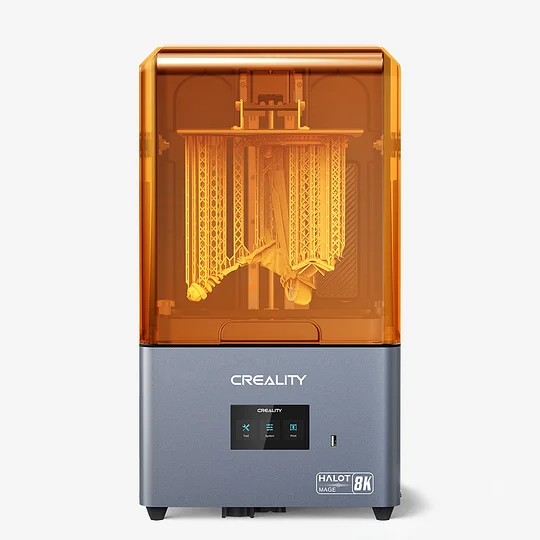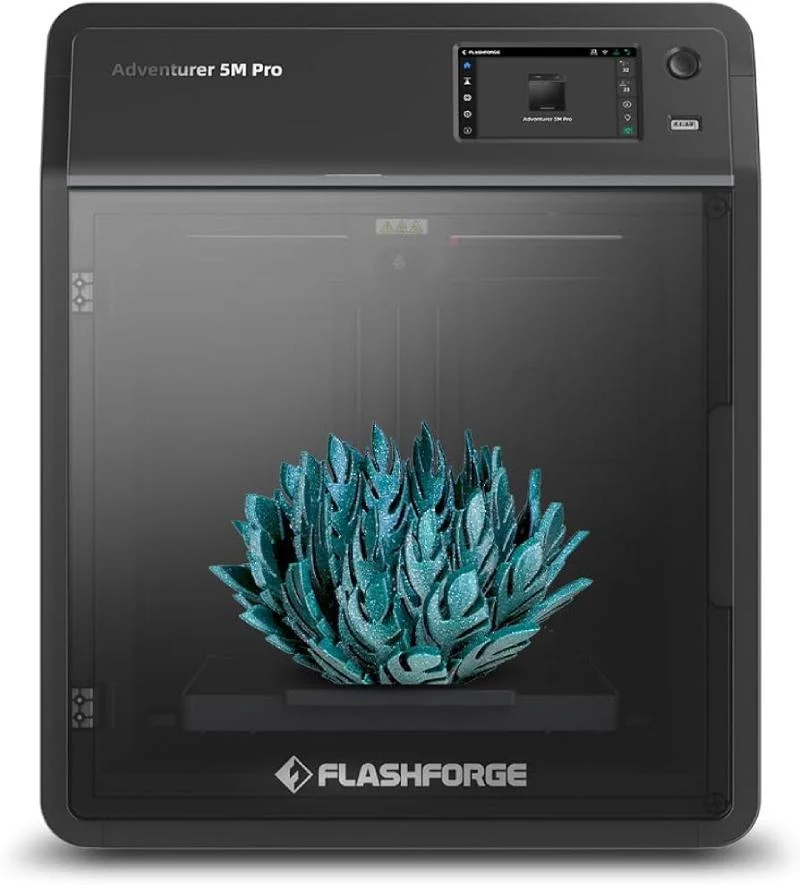Compare Halot Mage vs Adventurer 5M PRO
Comparison between the best 3D printers
Choose the best 3D printer at the best price. The cheapest 3D printers are here.
Buy a 3D printer here with 3D Fila.
 |
 |
|
| Model | Halot Mage |
Adventurer 5M PRO |
| Printing Material | Resin | Filament |
| Buy Resin for Creality 3D Halot Mage | Buy Filament forFlashforge Adventurer 5M PRO | |
| Estimated price | $399,00 | $599,00 |
| Manufacturer | Creality 3D | Flashforge |
| Release Year | 2023 | 2023 |
| Print Volume [mm] | 228x128x230 | 220x220x220 |
| Printer Size [mm] | 333x270x608 | 380x400x453 |
| Weight [kg] | 12 | 10,8 |
| Power Loss Recovery | NO | YES |
| Maximum Resolution [mm] | 0,01 | 0,1 |
| Processor | ||
| Display | Display touchscreen 4,3'' | Touchscreen 4,3'' |
| Power Supply | 100 W | 350 W |
| Connectivity | USB | Wifi / Ethernet / USB |
| Operating systems | Windows, Mac, Linux | Windows, Linux, Macbook |
| Date of registration in the system | 2023-05-23 | 2024-07-09 |
| Release date | 2023 | 2023 |
| Extra features | The Halot Mage stands out with its easy-to-operate, space-saving MageArch hinged lid that filters 99.89% of UV light. It includes an integrated air purifier with a large, efficient activated carbon filter that is ideal for absorbing resin odors. Its ultra-stable Z-axis with dual linear rails ensures larger, more accurate prints with minimal wobble. Plus, it features a robust tempered glass LCD protector for durability and protection against impacts and resin spills. | The Flashforge Adventurer 5M PRO features advanced features such as a CoreXY motion system, direct drive extruder, print speeds of up to 600mm/s and maximum acceleration of 20,000mm/s². It features fast nozzle changes, automatic calibration, active vibration compensation, camera monitoring, time-lapse video, HEPA and carbon filters for particles and VOCs, and an intuitive 4.3-inch touchscreen interface. Ideal for printing materials such as PLA, PETG, ABS and TPU. |
| Support for multiple colors and materials (AMS and CFS) | NO | NO |
Notes * |
||
| Cost-benefit | 8 / 10 | 7 / 10 |
| Hardware | 4 / 10 | 4 / 10 |
| Tela | . | . |
| Print volume | 3 / 10 | 3 / 10 |
| Performance | 9 / 10 | 5 / 10 |
Conclusion |
| In comparing the Halot Mage and the Flashforge Adventurer 5M PRO, both printers have their unique advantages, making them appealing to different user needs. The Halot Mage, with its focus on resin printing, offers high-resolution outputs due to its impressive maximum resolution of 0.01 mm. It is designed for ease of use with features like the MageArch hinged lid for efficient UV light filtration and an integrated air purifier, making it a great choice for users concerned about safety and odor during printing. Its print volume is slightly larger than that of the Adventurer 5M PRO, which could be advantageous for certain projects. On the other hand, the Flashforge Adventurer 5M PRO shines in versatility and performance. With a direct drive extruder and advanced motion system, it supports faster print speeds and a wider variety of filaments, accommodating common materials like PLA, ABS, and TPU. Its connectivity options (WiFi, Ethernet, and USB) along with power loss recovery features enhance its usability, making it more robust for consistent and high-quality prints. It also includes advanced features like camera monitoring and automatic calibration, which could be particularly beneficial for more experienced users or those who require more complex prints. While the Halot Mage is priced more affordably, it specializes in high-resolution resin prints, making it optimal for detailed models. Conversely, the Adventurer 5M PRO, though costing more, offers extensive functionalities suited for a variety of materials and more complex projects. In summary, the choice between these two printers will largely depend on the user's specific needs: if high-resolution resin printing is the priority, the Halot Mage is an excellent option. However, for a more versatile and feature-rich FDM printer, the Adventurer 5M PRO is the better choice. Each printer provides a good cost-benefit ratio and performance ratings, accommodating different facets of 3D printing requirements. |

